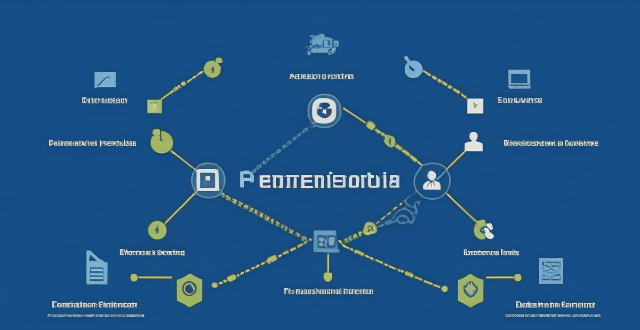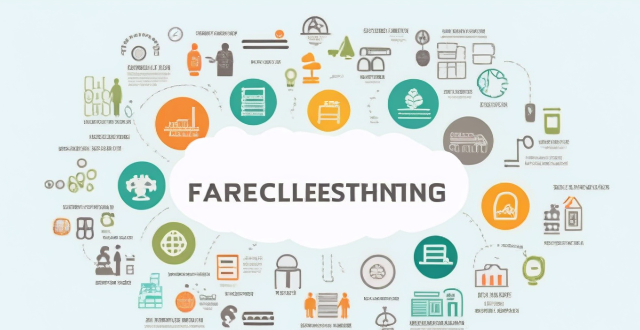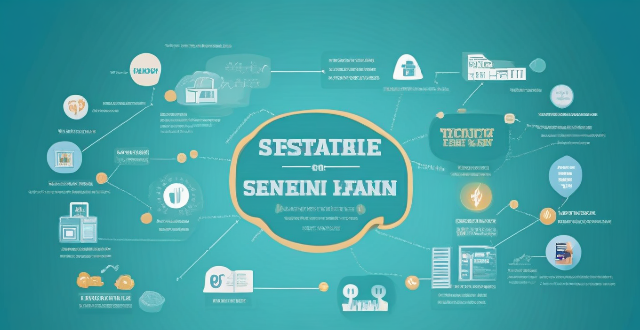Sustainable Chain

What policies and regulations are currently in place to encourage more sustainable supply chain practices ?
Policies and Regulations Encouraging Sustainable Supply Chain Practices discusses various government initiatives, industry standards, and international agreements that promote sustainable supply chain practices. Government policies such as green procurement, carbon pricing, and eco-labels incentivize businesses to adopt environmentally friendly operations. Industry standards like CSR and LCA help companies understand and reduce their ecological footprint. International treaties like the Paris Agreement and Basel Convention provide a global framework for sustainable practices. Together, these measures form a comprehensive system to support sustainable supply chains worldwide.

What is the role of consumers in driving more sustainable supply chain practices through their purchasing decisions ?
Consumers play a crucial role in driving more sustainable supply chain practices through their purchasing decisions. By choosing products that are produced using environmentally friendly and socially responsible methods, consumers can influence companies to adopt more sustainable practices throughout their supply chains. This can lead to reduced carbon emissions, improved working conditions, and better resource management. The key points include education and awareness, green consumerism, supplier selection, product design, brand loyalty, public pressure, regulatory influence, investor interest, innovation, and collaboration.

In what ways can businesses engage in sustainable supply chain management as a key component of their CSR programs ?
The text discusses the importance of sustainable supply chain management in corporate social responsibility (CSR) programs. It emphasizes setting clear objectives and goals, conducting supplier audits and assessments, collaborating with suppliers, measuring performance and reporting results, and continuously improving and innovating as key steps in sustainable supply chain management. The text suggests that these practices can help businesses demonstrate their commitment to sustainability while also improving their bottom line.

How can smart contracts improve supply chain management ?
Smart contracts can revolutionize supply chain management by automating transactions, enhancing transparency, improving efficiency, enabling real-time tracking, and reducing risks. This decentralized and automated approach can save time, reduce costs, prevent fraud, and improve overall trust between parties in the supply chain.

What are some best practices for managing risk associated with climate change in a global supply chain ?
This article outlines best practices for managing risk associated with climate change in a global supply chain. It suggests assessing climate change risks by identifying potential impacts and evaluating vulnerabilities, developing a risk management plan that includes setting clear objectives and implementing mitigation measures, and monitoring and reviewing performance through tracking progress against objectives and continuously improving strategies. Key strategies include diversifying supplier networks, investing in resilient infrastructure, improving energy efficiency, enhancing supply chain transparency, promoting sustainable practices, establishing regular reporting processes, benchmarking against industry standards, soliciting stakeholder feedback, revising risk management plans regularly, participating in collaborative learning opportunities, and fostering a culture of innovation within the organization.

What are the economic implications of investing in climate-resilient supply chain infrastructure ?
This article explores the various economic implications of investing in climate-resilient supply chain infrastructure. It highlights how such investments can lead to cost savings, increased productivity and efficiency, improved insurance rates, enhanced supply chain visibility, and competitive advantage. The article also emphasizes the importance of building a strong brand reputation and accessing new markets through sustainable and resilient practices. Overall, it underscores the significance of prioritizing investments in climate-resilient supply chain infrastructure for businesses and economies around the world.

How can blockchain solve the issue of supply chain management ?
Blockchain technology can revolutionize supply chain management by addressing various challenges faced by businesses. It improves visibility and traceability, reduces paperwork and manual processes, streamlines payment processes, enhances data security, and builds trust among stakeholders. With its potential to solve many of the issues faced by businesses in supply chain management, blockchain is an ideal solution for modern supply chains.

What are the benefits of staying at a small, boutique luxury hotel versus a larger chain resort ?
Staying at a small, boutique luxury hotel offers several advantages compared to a larger chain resort, including personalized service, unique ambiance, a quieter environment, local flavor, and exclusivity.

How has the COVID-19 pandemic highlighted the importance of resilient supply chain management in the face of climate-related disruptions ?
The text discusses the impact of the COVID-19 pandemic on supply chain management and emphasizes the importance of resilient supply chain management to withstand future climate-related disruptions. The pandemic caused significant disruptions in the global supply chain, including disruption of global trade, bottlenecks, shortage of raw materials, and labor shortages. A resilient supply chain is adaptable, diversified, collaborative, and leverages technology to improve efficiency, reduce waste, and increase transparency. These characteristics ensure that the supply chain can withstand not only the current crisis but also future climate-related disruptions.

Can sustainable supply chain practices help reduce carbon emissions and combat climate change ?
Sustainable supply chain practices can play a crucial role in reducing carbon emissions and combating climate change. By focusing on resource efficiency, waste reduction, transportation optimization, supplier management, lifecycle assessment, renewable energy adoption, and employee involvement, companies can significantly lessen their environmental impact. These efforts not only contribute to global sustainability goals but also offer potential reputational, efficiency, and cost benefits for businesses.

How can businesses contribute to sustainable consumption ?
Businesses can contribute to sustainable consumption by adopting circular economy principles, managing green supply chains, using eco-friendly packaging, practicing product stewardship, improving energy efficiency, conserving water, engaging in responsible marketing, promoting innovation, engaging stakeholders, and supporting environmental initiatives. These practices help reduce waste, minimize resource use, and inspire sustainable consumer behavior.

Why is sustainable investing important ?
Sustainable investing is crucial for the future of our planet and society. It considers environmental impact, social responsibility, long-term returns, risk management, and ethical considerations of companies. By investing in sustainable companies, investors can help combat climate change, create a more equitable society, and achieve long-term financial returns. Sustainable investing also aligns with many people's personal values and ethics.

How can businesses contribute to the achievement of the Sustainable Development Goals ?
Businesses can contribute to the achievement of the Sustainable Development Goals by adopting sustainable practices, promoting equitable workplaces, supporting local communities, innovating for sustainability, ensuring transparency and accountability, maintaining ethical business practices, and fostering education and awareness. These actions not only help achieve global development targets but also enhance a company's long-term success and resilience.

What impact have celebrities had on promoting sustainable fashion ?
### Summary: Celebrities significantly influence sustainable fashion promotion by raising awareness, shaping trends, supporting eco-friendly brands, driving industry changes, and setting personal examples of sustainability. Through campaigns, social media engagements, and public appearances in sustainable fashion, they encourage followers to adopt more environmentally conscious choices. Their actions not only increase the visibility of sustainable brands but also push for greater transparency and ethical practices within the fashion industry.

How do geopolitical factors influence the sustainability efforts of global supply chains ?
Geopolitical factors significantly influence sustainability efforts in global supply chains by affecting trade policies, political stability, resource control, infrastructure development, and cultural attitudes towards sustainability. These elements determine the costs, efficiency, and environmental impact of global production networks. Understanding these dynamics is vital for businesses aiming to build resilient and sustainable supply chain operations.

What are the challenges to achieving sustainable consumption ?
The text discusses the various challenges to achieving sustainable consumption, including lack of awareness and education, economic barriers, cultural and social norms, infrastructure and accessibility issues, technological limitations, policy and regulatory challenges, business practices, and consumer behavior. It emphasizes the need for a multifaceted approach involving education, policy changes, technological advancements, and cultural shifts towards more sustainable consumption patterns to overcome these challenges and move towards a more sustainable future for all generations.

What is the significance of traceability in the food supply chain for food safety ?
Traceability in the food supply chain is crucial for food safety, enhancing transparency, facilitating recalls, improving quality control, supporting regulatory compliance, enabling better risk management, and promoting sustainable practices.

What role do technology and innovation play in improving sustainability within supply chain management ?
Technology and innovation are crucial for enhancing sustainability in supply chain management. They enable real-time monitoring, process optimization, energy efficiency, waste reduction, and transparency. By adopting these advancements, businesses can create environmentally friendly operations while maintaining profitability.

How does global shopping change with holiday seasons ?
The holiday season significantly impacts global shopping trends, affecting consumer behavior, marketing strategies, and supply chain operations. Key changes include increased spending, a shift to online shopping, targeted advertising, adapted supply chains, evolving product demands, workforce adjustments, sustainability concerns, and digital transformation. Retailers must adapt to these changes to meet consumer expectations and maximize sales success.

How can businesses incorporate sustainable practices into their operations ?
Businesses can adopt sustainable practices by conducting a sustainability assessment, implementing energy-efficient measures, reducing waste and promoting recycling, greening their supply chain, supporting environmental initiatives, and monitoring progress. These actions not only help reduce environmental impact but also enhance brand reputation and ensure long-term success.

What is the responsibility of corporations in promoting environmentally friendly practices ?
Corporations have a significant role to play in promoting environmentally friendly practices. The responsibilities include reducing their carbon footprint, sustainable sourcing, effective waste management, water stewardship, biodiversity protection, and education and awareness. By adopting sustainable strategies, corporations can significantly reduce their negative impact on the environment and contribute to a more sustainable future.

What are the main sources of sustainable energy ?
The text discusses the various main sources of sustainable energy, including solar energy, wind energy, hydropower, geothermal energy, bioenergy, tidal and wave energy, and hydrogen energy. It also highlights the importance of adopting sustainable energy for environmental impact, economic benefits, energy security, and health considerations. The transition to sustainable energy requires investment, policy support, and technological innovation.

How do circular economy principles apply to supply chain management, and what benefits do they bring in terms of climate change adaptation ?
The circular economy is a regenerative system that replaces the "end-of-life" concept with reducing, alternatively reusing, sharing, repairing, refurbishing, remanufacturing and recycling existing materials and products. This approach minimizes waste and pollution, extends product lifecycles, and helps to mitigate climate change. In supply chain management, applying circular economy principles can bring significant benefits in terms of climate change adaptation. The key principles of circular economy in supply chain management include design for recycling and reuse, extended producer responsibility (EPR), circular procurement, collaborative partnerships, resource efficiency, digital tracking and transparency, reduction in greenhouse gas emissions, conservation of natural resources, increased resilience, innovation and economic opportunities, and improved waste management. By adopting these practices, organizations can contribute to a more sustainable economy that reduces environmental impacts and builds resilience against the effects of a changing climate.

How can blockchain technology improve supply chain management in transportation ?
Blockchain technology can improve supply chain management in transportation by providing enhanced transparency, increased efficiency, improved security, and greater collaboration. This can lead to reduced costs, faster dispute resolution, and improved customer satisfaction. Blockchain allows for real-time tracking of goods, shared data access, automated processes, and reduced paperwork. It also ensures data integrity, builds trust among parties, and helps mitigate risks. By encouraging collaboration and open standards, blockchain promotes innovative solutions that can further improve supply chain management in transportation.

How can suppliers be motivated to adopt more eco-friendly practices in their operations to support a greener supply chain ?
**Motivating Suppliers to Adopt Eco-Friendly Practices** In today's world, environmental sustainability has become a global concern, and businesses are increasingly looking towards greener supply chains. However, the success of a green supply chain largely depends on the suppliers' willingness to adopt eco-friendly practices. This article provides strategies for motivating suppliers to embrace sustainable operations, including financial incentives, collaborative approaches, transparency and accountability, technology and innovation, and regulatory compliance. By implementing these strategies, businesses can effectively motivate their suppliers to adopt eco-friendly practices, which not only benefits the environment but also enhances business reputation and customer satisfaction.

How does sustainable consumption impact the economy ?
Reduced resource depletion, lower energy costs, increased innovation, and improved public health are some of the key benefits of sustainable consumption. While there may be short-term costs associated with transitioning to more sustainable practices, the long-term benefits far outweigh these costs.

How can sustainable investing help achieve the United Nations Sustainable Development Goals ?
Sustainable investing, which incorporates environmental, social, and governance criteria into investment decision-making, can significantly contribute to achieving the United Nations Sustainable Development Goals. It promotes environmentally friendly practices, enhances social well-being, advances economic growth and innovation, upholds good governance and partnerships, drives market trends towards sustainability, and attracts conscience-driven consumers. By aligning financial objectives with positive societal impact, sustainable investing creates a framework for long-term, sustainable growth that benefits people, planet, and profit.

How does waste reduction contribute to a circular economy ?
The transition to a circular economy is significantly influenced by waste reduction, which encompasses various strategies like reusing products, recycling materials, and promoting resource efficiency. These practices help in conserving natural resources, reducing pollution, creating economic opportunities, and fostering sustainable consumer behavior. Governments and businesses play a crucial role in driving waste reduction through policy initiatives, technological innovations, and sustainable supply chain management. Community engagement and public awareness further support this shift towards a more sustainable economic model.

How do I choose a sustainable investment fund ?
Choosing a sustainable investment fund requires careful consideration of various factors, including your investment goals, the fund's ESG criteria and performance history, the experience of the fund manager, the fund's holdings and alignment with your values, fees and expenses, and ongoing monitoring of your investment. By following these steps, you can select a sustainable fund that aligns with your financial goals and personal values.

Can you recommend some sustainable brands for sports fashion ?
This text provides a list of sustainable brands for sports fashion, including Patagonia, Adidas x Parley, Reebok x Bolt Threads, Allbirds, Girlfriend Collective, Veja, Tentree, Ecoalf, Outerknown, and Pact. These brands prioritize sustainability, ethical practices, and transparency in their supply chains, using materials such as recycled ocean plastic, Mylo leather alternative, organic cotton, and bamboo viscose. They also offer programs like take-back and recycling to reduce waste and protect the environment.